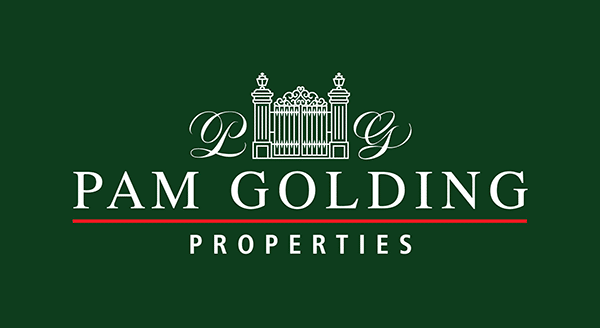Real Estate Investment in Mauritius
Real estate investment in Mauritius has become an attractive option for many investors. Whether for portfolio diversification or to take advantage of the tax benefits available, Mauritius offers many interesting opportunities. In this section, we will explore why it is worth investing in Mauritius and discuss the associated acquisition costs.
Why invest in Mauritius?
There are several compelling reasons to invest in Mauritius. First and foremost, the island’s real estate market is booming, offering numerous growth opportunities. Whether you’re looking to invest in residential, commercial, or tourist real estate, Mauritius offers a variety of attractive real estate projects suited to different types of investors.
Additionally, Mauritius offers favourable real estate taxation, with tax benefits such as capital gains tax exemption and competitive tax rates. These tax incentives attract many international investors seeking advantageous tax treatment.
Mauritius is renowned for its pleasant living environment, political stability, skilled workforce, and high quality of life. These factors make Mauritius an attractive place to invest and live.
Understanding Acquisition Costs
Before embarking on a real estate investment in Mauritius, it’s essential to understand the associated acquisition costs. These costs include property acquisition fees and applicable taxes.
The main acquisition costs include transfer taxes, notary fees, registration fees, and real estate agency fees. Transfer taxes are calculated as a percentage of the property’s value and are paid to the government at the time of the transaction. Notary fees are the legal fees for drafting and registering the transaction documents. Registration fees are paid to register the transaction with the relevant authorities. Real estate agency fees are generally paid by the seller and represent a percentage of the property’s value.
In addition to acquisition costs, it’s important to consider taxes. Property tax is an annual property tax based on the property’s value. Capital gains tax is levied when a property is sold and is calculated based on the capital gain. Finally, income tax may be levied on rental income.
In addition to these costs, it is also important to consider other expenses such as rental management fees, condominium charges and insurance.
Understanding the acquisition costs associated with real estate investment in Mauritius will help you plan and budget appropriately. It’s recommended that you seek the help of a financial expert to help you establish an accurate budget and forecast long-term costs. This way, you can invest in real estate in Mauritius with confidence.
Note: The information provided in this article is for informational purposes only and should not be considered financial or tax advice. It is recommended that you consult a qualified professional for personalised advice.
Acquisition costs
When purchasing real estate in Mauritius, it is important to consider the acquisition costs that are added to the purchase price of the property. These costs are essential to understand in order to establish a realistic budget. The main acquisition costs include transfer taxes, notary fees, registration fees, and real estate agency fees.
Transfer rights
Transfer taxes, also known as transfer fees, are a tax paid when property is transferred from a seller to a buyer. They are calculated as a percentage of the property’s purchase price. Transfer taxes vary depending on the property’s value and are set by law. It is recommended that you consult a notary or real estate expert for specific information on the transfer taxes applicable to your situation.
Notary fees
Notary fees are the fees charged by the notary for drafting the deed of sale and handling all legal formalities related to the property purchase. These fees are generally calculated as a percentage of the purchase price, with a fixed rate for the lower price brackets and a decreasing rate for the higher brackets. Notary fees can vary from one notary to another, so it is advisable to request quotes from several notaries to compare rates.
Registration fees
Registration fees are a tax paid for registering the deed of sale with the relevant authorities. These fees are calculated as a percentage of the property’s purchase price. Applicable rates may vary depending on the property’s value and are determined by law. It is important to check the rates in effect at the time of purchase.
Real estate agency fees
If you hire a real estate agency to help you with your property search and purchase, you will usually be charged a real estate agency fee. These fees are usually calculated as a percentage of the property’s purchase price. Rates can vary from agency to agency, so it’s advisable to shop around and compare prices.
It’s important to note that acquisition costs can represent a significant portion of the total cost of buying property in Mauritius. It’s therefore essential to factor them into your financial calculations. For more information on buying property in Mauritius, see our article on buying property in Mauritius.
Taxes and duties
When considering a real estate investment in Mauritius, it is essential to understand the taxes associated with property acquisition. Here are three key elements to consider: property tax, capital gains tax, and income tax.
Property tax
Property tax is an annual tax levied on the value of your property. Its amount is calculated based on the property’s value and can vary from region to region. It’s important to note that foreign residents are eligible for a preferential tax rate for a specified period. For more information on tax benefits in Mauritius, see our article on tax benefits in Mauritius.
Real Estate Capital Gains Tax
Capital gains tax is applicable when selling a property. It is calculated on the capital gain between the initial purchase price and the sale price. The rate of this tax may vary depending on the length of time the property has been owned. It is recommended to consult a financial expert for personalised advice on real estate taxation in Mauritius. Consult our article on real estate taxation in Mauritius to learn more.
Income tax
Income tax is a progressive tax levied on income generated in Mauritius. If you decide to rent out your property, you will be subject to this tax on rental income. Tax rates vary depending on the amount of income. It is important to consider this tax when developing your financial plan. For specific tax planning advice, it is recommended to consult a financial expert.
Understanding the taxes and duties associated with owning a property in Mauritius can help you plan your investment more accurately. It’s essential to factor these costs into your overall budget and educate yourself on current tax regulations. For more information on real estate investing in Mauritius, check out our article on real estate investment in Mauritius.
Other costs to consider
In addition to acquisition costs and taxes, it’s important to consider other costs associated with real estate investment in Mauritius. These additional costs include rental management fees, condominium charges, and insurance.
Rental management fees
If you’re considering renting out your property in Mauritius, you’ll need to consider rental management fees. These fees are typically charged by a property management agency that handles the rental, maintenance, and management of your property. Rental management fees vary depending on several factors, such as the size of the property and the services provided by the agency. It’s important to consider these fees when setting your real estate investment budget.
Co-ownership charges
If you’re investing in a property that’s part of a condominium, you’ll also need to consider condominium fees. These fees are recurring charges paid by owners to cover common expenses such as maintenance of common areas, security, electricity, water, cleaning services, and more. Condominium fees vary depending on the size of the property and the services provided by the condominium. Be sure to check condominium fees before investing in a property in Mauritius to understand the associated costs.
Insurance
Insurance is another cost to consider when investing in real estate in Mauritius. It is essential to protect your investment by purchasing appropriate home insurance. This insurance can cover damage caused by events such as fire, floods, storms, theft, and more. Insurance premiums can vary depending on the property’s value, location, and associated risks. It is recommended to consult an insurance broker for personalised advice and to find the best coverage for your property.
By factoring in these additional costs, you’ll be able to establish a more accurate budget for your real estate investment in Mauritius. It’s also advisable to seek the advice of a financial expert to help you plan your investments and assess long-term costs.
Please note that the costs mentioned in this article are indicative and may vary depending on various factors. It is recommended to consult local experts and conduct thorough research before making any real estate investment decisions.
Financial planning
When investing in real estate in Mauritius, it is essential to plan your finances carefully to ensure optimal management of your project. In this section, we will cover three key aspects of financial planning: budgeting, forecasting long-term costs, and using a financial expert.
Establish a budget
Before embarking on a real estate investment in Mauritius, it’s important to establish a clear and realistic budget. This will help you determine your financial limits and better guide your choice of property. Factor in acquisition costs, rental management fees, condominium charges, insurance, as well as any maintenance and renovation expenses. It’s also recommended to allow for some flexibility to cover unforeseen expenses.
Forecasting long-term costs
Investing in real estate in Mauritius isn’t just about the initial costs. It’s essential to consider long-term costs for effective asset management. Expected costs may include regular property maintenance, property taxes, insurance, and potential renovation or upgrading expenses. By considering these long-term costs, you can better plan your finances and avoid surprises.
Call on a financial expert
When investing in real estate in Mauritius, it may be wise to seek the help of a financial expert. A knowledgeable professional can guide you in developing your financial plan, taking into account your goals, financial situation, and the specifics of the Mauritius real estate market. They can advise you on the best investment strategies, help you assess risks and opportunities, and provide recommendations tailored to your situation. Don’t hesitate to consult a financial expert for personalised support throughout your project.
Careful financial planning is essential to maximise the benefits of your real estate investment in Mauritius. By establishing a realistic budget, anticipating long-term costs, and seeking professional expertise, you’ll be able to make informed decisions and effectively manage your real estate assets.

Born in Mauritius, I have a Bachelor of Arts in Mass Communication. I have nearly 12 years’ experience in marketing, public relations and communications. Passionate about meeting people, creativity and business growth, I am results-oriented. My goal is to guide communication to touch the hearts and minds of customers. My motto is: “Treat others as I would like to be treated.”






